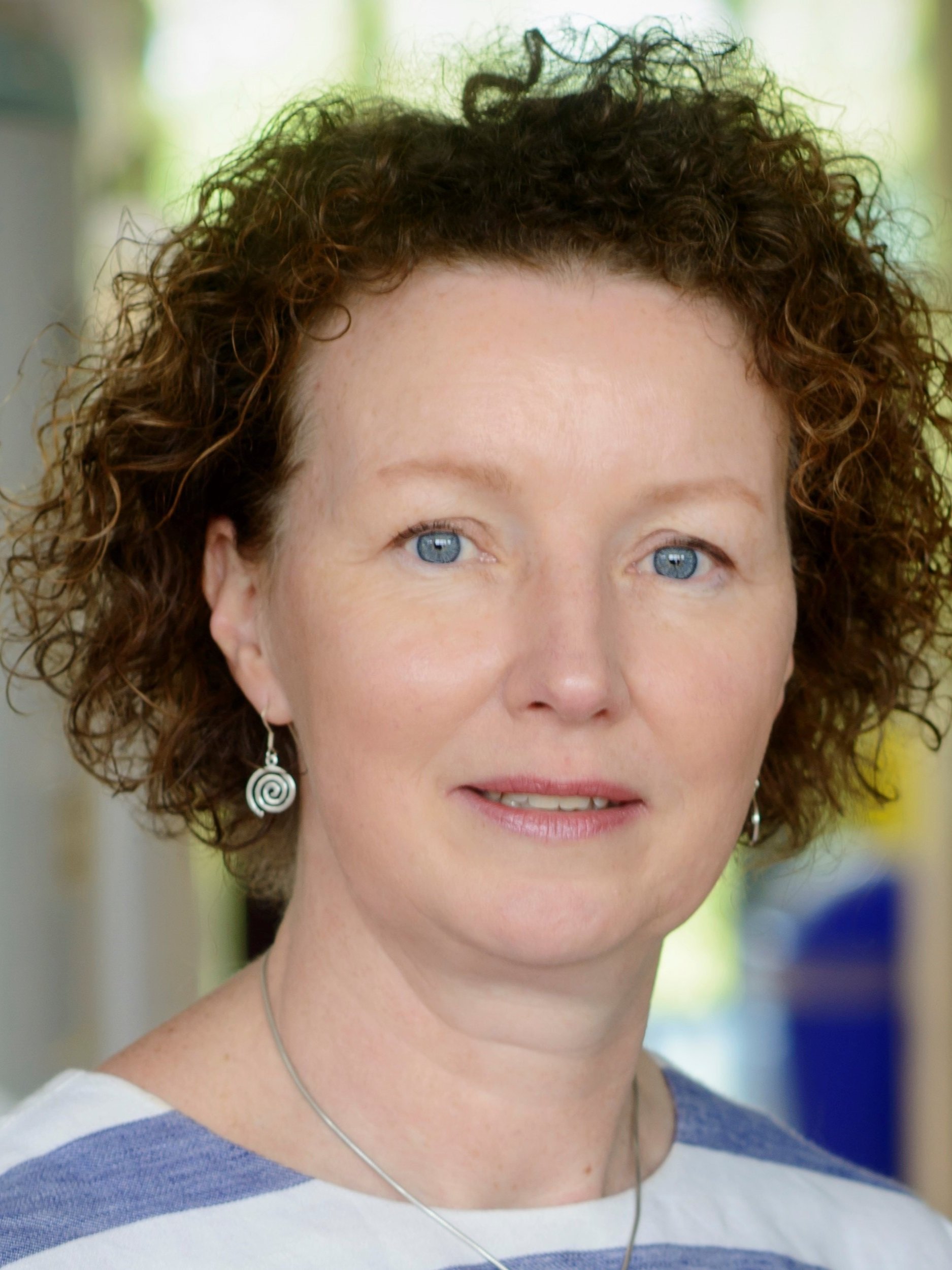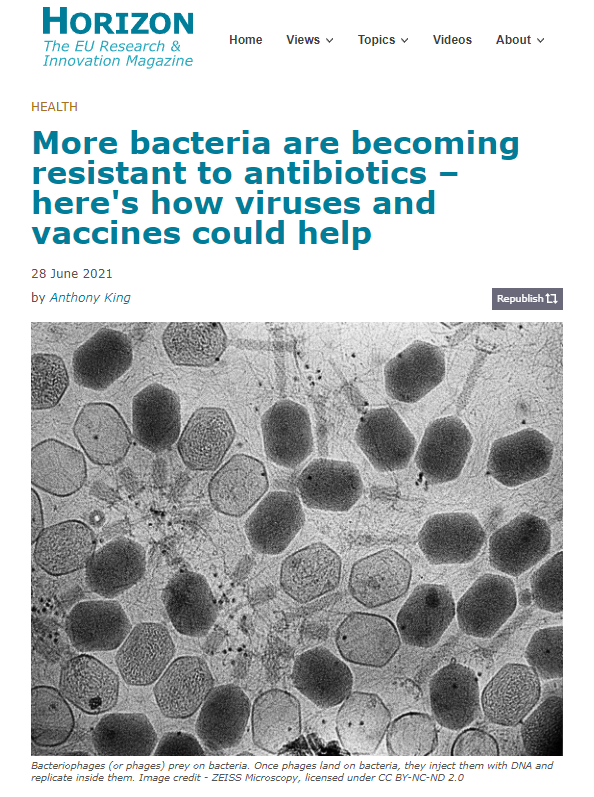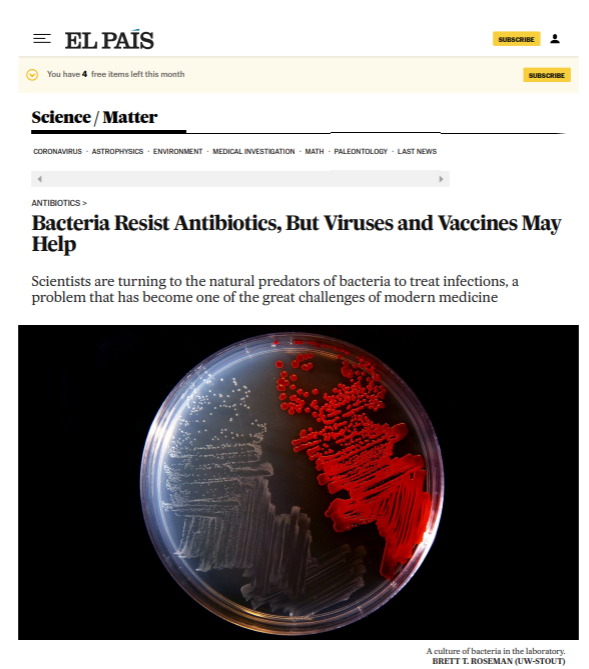BactiVax project at UCD highlighted in the Horizon EU Magazine and the Spanish journal El País
Earlier this year, an article in the HORIZON EU Research & Innovation magazine highlighted BactiVax efforts to tackle the global burden of antimicrobial-resistant bacteria through vaccine development. The article was also shared by El País, which is the top-ranking Spanish-language media outlet, and the second most circulated daily newspaper in Spain.
Antimicrobial resistance occurs when pathogens evolve over time and no longer respond to medicines making infections harder to treat, and increasing the risk of disease spread, severe illness and death. Antibiotic resistance occurs naturally, but misuse of antibiotics in humans and animals accelerates the process significantly (source: World Health Organisation). The consequences for global health are drastic, as an estimated 700,000 people die yearly due to antibiotic-resistant bugs. The WHO predicts that this will reach 10 million deaths per year by 2050 if nothing changes.
Unfortunately, recent antibiotic development hasn’t been able to address this issue. Of 43 antibiotics currently in development, none are novel drugs that adequately target a group of priority drug-resistant bacteria, according to a recent WHO review. Additionally, since the 1980s no new antibiotics have been put on the market that can effectively target one of the most dangerous class of bacteria, the Gram-negative. Among these, Pseudomonas aeruginosa is one of the most problematic as it’s easily acquired in hospitals and leads to serious infections especially in patients with chronic conditions such as cystic fibrosis or chronic obstructive pulmonary disease (COPD).
‘It is quite common, and is sometimes not really damaging, but it can be a problem for people with underlying conditions. If a child with cystic fibrosis is infected with some strains when they are 5 or 6 years old, the bug can stay in their lungs for their entire life and complicate their breathing and make them severely ill’, said Irene Jurado, BactiVax researcher in UCD.
In her project, coordinated by Assoc. Prof. Siobhán McClean, Irene is investigating the various proteins that P. aeruginosa uses to attach to lung cells. Once studied in detail, these could offer a lot of information on how the bacterium infects cells and adapts over time, and they can also serve as key components for prophylactic or therapeutic vaccines.
As Dr. McClean explains:
‘We are trying to see what immune responses are needed to protect people from infection. Our idea is that if we can get a vaccine to prevent infection, it’s better than constantly trying to treat (problem infections) with antibiotics. We’re down to the antibiotics of last resort and when they run out, we’re going to be stuck.’
Read the full article, written by science journalist Anthony King here.
Recent tweets from BactiVax
-
RT @mcclean_siobhan: Our fantastic @Bactivax meeting is all over. Great science, great chats and plenty of fun. Thanks to Rita Berisio (… https://t.co/sC7ddNvinE
-
RT @mcclean_siobhan: We had a really informative session this morning on D3 of our @BactiVax summer school: Science Communication & over… https://t.co/sj3zYNHs0h
-
RT @mcclean_siobhan: Amazing talk from Mariagrazia Pizza from @GSK who shared her extensive experience in working on Bacterial #Vaccines… https://t.co/Nm4U46hxJd






